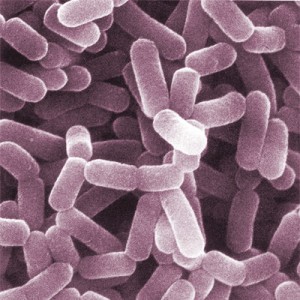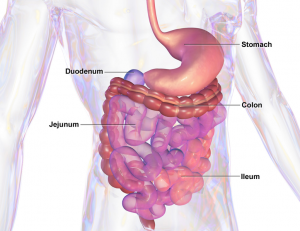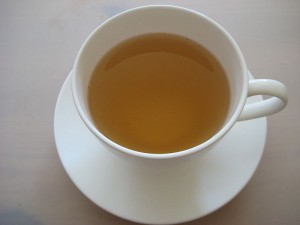
Lactobacillus casei, a microbe found in dairy products, the human intestine and mouth. Source: Flickr, user: ajc1
There are a hundred trillion cells in our body. You might think that most of the cells are human, but in fact, 90% of these cells are tiny microorganisms like bacteria that we can’t see with the naked eye! But where do these microbes come from, and what are they doing in our body?
All mammals, including humans, are usually born free of bacteria and other microbes. However, shortly after birth, babies become colonized by microbes that come from their parents, the food they eat, and the environment. The colonization of our gut by microbes continues throughout our entire lifespan. The population of microbes in our gut tends to become more complex as we get older and start consuming solid food.
Now that we know a bit about how we obtain these microbes, how are they affecting us?
Most of us reading this blog have “Westernized” or modern lifestyles, where we have access to clean water, processed food, modern medicine, and hygiene. This does not mean that our environment is completely sterile, but as it turns out, the gut microbe population is less diverse in people in Westernized populations compared to rural populations.
So why is this important?
Lower diversity of microbes in our gut is associated with autoimmune diseases like Crohn’s disease and irritable bowel syndrome, as well as conditions like multiple sclerosis and autism. It may also explain why there is a higher prevalence of conditions like asthma and allergies in modern society.
Watch the following video which showcases our interview with Dr. Laura Parfrey, a researcher in the Departments of Botany and Zoology at UBC, to find out more about how our lifestyle influences our gut, and more importantly, what we can do to make our gut microbes more diverse.
https://www.youtube.com/watch?v=M8NqMXPjFRM
Source: own work
Dr. Parfrey recently found that the diversity of gut microbes differs between Westernized populations and rural populations. She specifically looked at eukaryotic microbes, which are essentially all the microbes that aren’t bacteria, and found that the Western population had a much less diverse set of microbes! This may help explain the increasing prevalence of autoimmune diseases and allergies in modern society. According to Dr. Parfrey, there is still a lot that we still don’t know about how microbes affect our health, and she explains further research questions and why she finds her research interesting, in the following podcast:
https://www.youtube.com/watch?v=2deTthuR8ZA
Source: own work
So, there are lots of microbes in our body, especially the gut, and they’re affecting our health more than we’ve thought previously! In order to keep our gut microbes healthy and diverse, people can avoid overemphasizing hygiene with their kids; and as for adults, people can incorporate more diverse sources of food into their diets, especially diverse sources of complex carbohydrates.



